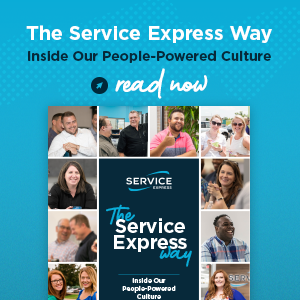The lines between work and home have blurred. Technology that was supposed to make life easier has affected our ability to balance life at home with obligations at work. Cell phones vibrate all the time, day and night, and they demand our attention. Our minds have become attuned to the chirps and vibrations of our devices. So much so that some experience a physiological phenomenon called Phantom Vibration Syndrome where they reach for their pocket sensing the vibration of their cell phone only to find that it was not vibrating at all.
Professionals today feel pressure to be the first to arrive at work and the last to leave. That often means saying goodbye to the kids as they’re getting out of bed, and hello to them as they’re climbing back into bed. Often, vacation time goes unused. When we do go on vacation we’re never more than a text, email or phone call away.
Too many managers treat employees like hired hands and don’t consider their personal, family and financial obligations outside of work. That’s why mangers should manage processes, not people (for more on this, check out The Difference Between a Leader and a Manager). That kind of management leads to burnout, decreased productivity, low moral and it amounts to a toxic culture.
The root of the problem is this: too many organizations have not built a process for leaders to discuss personal, professional and financial goals with employees into their culture. Without that process, managers have a natural tendency to demand much and listen little.
It takes time, but perhaps the single greatest thing that an organization can do to ensure profitability and sustainability is to place a high priority on their employees work life balance. Does that sound drastic? SEI’s Vision is to “work with our employees to help them achieve their personal, professional and financial goals.” SEI has experienced double-digit annual revenue growth for the past 15 years while maintaining a 98% customer retention rate. SEI has been named an INC 5000 company and has received numerous awards including being named a 101 Best and Brightest Company to Work For and the Alfred P. Sloan Award for Excellence in Workplace Effectiveness and Flexibility. It’s worked for us.
We don’t limit our employees to just sharing their professional goals with us, we want to know what their personal and financial goals are as well. We want to be intentional about helping them achieve their goals for work and family. We also want to hear about the obstacles they face in balancing work and family. For some, it means taking their family on that vacation they’ve dreamed of, being home when their kids get home from school, attending their kids sporting events, having a date night with their spouse, making enough money so their spouse can stay at home with the kids, relocating their family, and a number of other scenarios.
We do it through Vision talks, Quarterly 5/15s and employee engagement surveys.
Employees who have a great work-life balance are appreciative toward their employer and their families are too. If an organization can earn the trust of a family, it’s much more likely to retain the employee. An employee who has a healthy work-life balance is also more likely to be a more productive employee.
Finally, our experience has shown that if we take care of our employees, they’ll take care of our customers.

